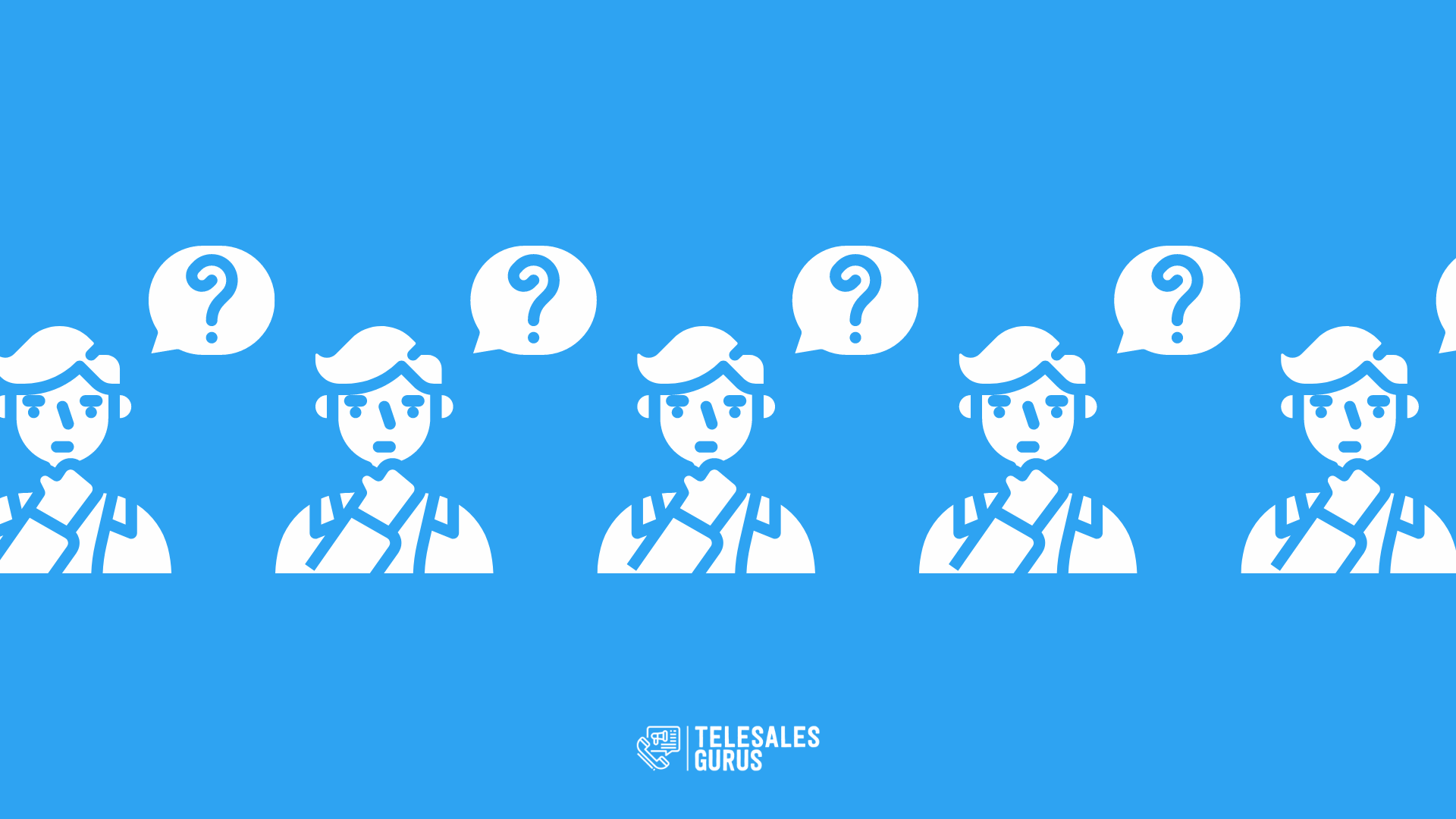
Why Is Cold Calling Important In Sales?
When a sales rep makes a cold call, anything can happen.
The person on the other end can listen intently, launch a verbal attack, hang up… or become a long-term customer.
That’s the nature of cold calls. And it leaves us with the question: Is cold calling important in sales?
Undoubtedly, cold calling is beneficial to sales efforts. According to a 2019 report by the RAIN Group Center for Sales Research, 69% of the 488 B2B buyers in the study accepted a cold call.
The problem is that some sales reps focus on the few who don’t answer a call and forget the potential of this strategy.
Let’s first weigh the benefits of cold calling.
Why Cold Calling Works
It Builds Rapport
You get better feedback from cold calls than email pitches because you can receive it and ask follow-up questions in real-time.
It also brings a human touch to the selling process, unlike automated outreach created for the masses. As the conversation flows, you can gauge how warm the prospect is and adjust your pitch accordingly. You may not convert on the first call, but the relationship creates a foundation for subsequent calls.
Reach Potential Clients
A cold call is a direct channel to sell your brand and offer. It cuts through the clutter of marketing activities to connect your brand to the prospect.

Improve Sales Pitches
The conversation tells you more about your client and their needs so you can adjust your next sales pitch.
Additionally, cold calls help you understand how to communicate. As you listen to the feedback from the other end, you collect verbal and nonverbal cues such as tone of voice, opening statements, and calls to action. You develop emotional intelligence which helps you to have better conversations. Within no time, you can handle rejection without raising your voice or sounding frustrated.
On top of that, a cold call is a telephone conversation which for some is easier than pitching face-to-face.
It’s Simple
Calling doesn’t take as much time as crafting lengthy emails and replying to email queries. With a strong phone script, even an inexperienced sales representative can be successful with cold calls. Plus, once you connect, you can get feedback immediately, unlike with other channels where you may have to wait for a long time before you get a response.
Beyond simplicity, cold calls are cost-effective. It’s more affordable than door-knocking when covering a large territory. And making 30 calls a day is more cost-effective than traveling or investing resources into a live event that doesn’t convert.
It’s Measurable
You’ll have visibility of how many calls you make in a day, the number of answered or rejected calls, referrals, and call duration. A sales manager can allocate resources to the team based on the return on investment from the data collected.
There are so many reasons cold calling is essential in sales. So, why are some sales reps reluctant to do it?

Why Cold Calling Fails
There’s always the temptation to increase the number of calls hoping to double the desirable outcome.
But, if your process is faulty, you’ll only double your rejections when you increase the number of calls.
If cold calling isn’t working for you, you’re probably doing it wrong. Here are some things that can affect your strategy.
Poor Quality Lists
The 2012 Keller Center Research Report is a study that covers the effectiveness or inefficiency of cold calls. The results are as relevant now as they were when they did the study. Have you read it?
This study’s unanswered calls equaled 55% of the total calls, but that doesn’t mean cold calling is dead. First of all, this research used a generic, unqualified list. The agents called 6,264 people in seven days and had 1,774 answered calls.
From the 1,774 calls, which was 28% of total calls, there were 19 appointments, 11 referrals, and 132 requests to call back later. The fact that these appointments and referrals came out of a generic list shows the potential of cold calling.
We can’t ignore the 17% of total calls made to non-working numbers. Unqualified numbers take up time that could be much better spent.
The takeaway? Research should be the first step before making calls.
Unclear Goals
We make sales calls to introduce, follow up on a previous call, or sell. Therefore, the calling script should match the purpose so that the conversation is suitable to meet your end goals.
Poor Phone Etiquette
A great opener creates a foundation for a conversation that the person on the other end will enjoy. Cold calling is intrusive, so your opener should be compelling and to the point.
Further, your talking-to-listening ratio should allow you to explain your motive and give a client time to answer your questions.
Demotivation
It’s discouraging to make calls and receive one rejection after another. We know this.
Demotivation can also cause impatience. Having researched and being committed to the calling list is more motivating because you’ll know your prospects. It makes a huge difference compared to going into a call blind.
If a prospective client says no, instead of feeling rejected, you can ask them to share the reason for turning down your offer. This information is invaluable and can improve your next sales pitch.
Hard Sell
Reps are also rejected for sounding too pushy. In today’s market, buyers have access to so many platforms and little time for cold sales pitches. Make the call count by being consultative. Instead of being pushy, offer solutions and educate your prospect.
You’ll get better feedback when you focus on building a relationship with a customer. So, ask questions that help you understand a customer’s present situation and offer advice or strategize your sale to that need. That way, your product will come off as a suggestion that the customer should consider instead of sounding like you only called to sell.
Overall, a cold call is successful when it meets your goal, such as conversion, subscription, or an appointment.
Not every conversation will go as you’ve envisioned, but rejections are easier to handle when you see each call as an opportunity to improve your pitch.
Even successful sales reps won’t get a “yes” most of the time.

Final Thoughts
Cold calling is neither dying nor dead. It’s a practical customer acquisition strategy that sales reps use every day. But it really only works when you call the right prospects and get them to engage with you.
It isn’t about calling prospects on a generic list; it’s about having meaningful conversations with qualified contacts and listening to them.
And even when they say no before you pitch your offer, you should stay in the game for your next call… and the next.
By doing so, you’ll build awareness, connections, and ultimately your business. If these things matter to you, then it should be clear why cold calling counts.
RELATED: 9 Key Elements For Successful Telemarketing Calls, Don’t Think Cold Calling Is Fun? Stories To Change Your Mind!




